Whether your team manages social media or your agency provides a full range of digital marketing services, you need the right tools for the job.
You should have the most effective mix of marketing technologies— a solid MarTech stack.
What types of tools does your team need to succeed, and what vendors offer the essential options in each category? Find out how to build the best MarTech stack for your team or agency so you can work smarter and deliver next-level service.
What Is MarTech?
An abbreviation for marketing technology, MarTech is a phrase that describes the software and applications that marketing teams use to plan, implement, and analyze campaigns. MarTech can cover anything from social media and email marketing to website and digital asset management.
Marketers typically rely on a MarTech stack, which is a group of tools designed to streamline your efforts. With the right suite of tools, your organization can enjoy benefits like:
Integrating technology: Some marketing apps and tools function independently. However, many integrate seamlessly with one another to reduce your workload and streamline tasks.
Automating processes: Many MarTech tools automatically compile and analyze data related to your marketing efforts. That means your team has to perform fewer manual tasks so you can focus on higher-level work instead.
Increasing productivity: Because MarTech tools allow you to prioritize automation and efficiency, they can help your team save time. That means you can accomplish tasks faster and do more with less time.
Improving results: Since the typical MarTech stack processes a wide range of data, it can produce more in-depth analyses. By reviewing and acting on these insights, your team can improve future campaign results.
Optimizing strategies: As your team relies on MarTech to gather data and process insights, you can identify patterns and trends. Your team can then use these findings to inform, fine-tune, and improve marketing strategies.
How to Build the Ideal MarTech Stack
There’s no universal MarTech stack that’s best for every company or agency. Instead, the ideal suite of tools depends on the services your business offers and what your team wants to accomplish—either for your brand or for clients. Depending on your marketing team’s needs, your stack may include some or all of the following types of tools.
Business Intelligence Tools
Business intelligence (BI) tools are powerful software applications designed to process and analyze a wide range of data. With these tools, you can perform consumer and market research, identify patterns and trends, answer important questions, and generate valuable insights. BI tools can also help your team work more efficiently and make smarter decisions.
Social Media Management Tools
Social media management tools allow your team to oversee Facebook, Instagram, Twitter, and other channels. These applications can handle tasks like:
Publishing and scheduling social media posts
Moderating engagement like comments and messages
Monitoring brand mentions, hashtags, and keywords
Analyzing audience, content, and monitoring outcomes
Email Marketing Tools
Email marketing tools make it possible to grow your business via email. With an email marketing service, you can:
Nurture potential customers and guide them through the buyer’s journey
Improve brand awareness and interest in your company’s offerings
Sell products and services via an integrated e-commerce platform
Share your brand’s educational content and resources
Digital Advertising Tools
Digital advertising tools allow your brand to run paid promotions. These platforms let you:
Expand your customer base and reach more of your target market
Announce limited-time discounts and seasonal events
Improve brand awareness and increase conversions
Content Management Tools
Content management systems (CMS) make it easier to create and promote the material your brand produces. With a CMS you can:
Write, edit, test, and optimize digital content as a team
Preview, schedule, and publish content online
Develop materials ranging from blog posts to sales pages to e-books
Track content promotions, views, shares, and other metrics
Digital Asset Management Tools
Digital asset management (DAM) tools are critical for organizing and providing access to your company’s files. DAM tools can help you:
Store digital content ranging from images to videos to sound files
Ensure that team members have access to approved versions of files
Set permissions to improve security and allow essential access only
E-commerce Management Tools
E-commerce tools are essential for businesses that sell direct-to-consumer (DTC) products. These tools make it easy to sell online by:
Integrating with or even replacing website management tools
Monitoring product inventory and displaying available stock in real-time
Supporting common payment portals and collecting applicable taxes
Initiating customer shipments and processing returns
Website Management Tools
Website management tools let you establish and improve your brand’s digital presence. These tools let you:
Build a website, create new pages and posts, and update digital content
Monitor search engine optimization (SEO) efforts to improve visibility
Track and analyze visitors, views, conversions, and e-commerce metrics
Customer Relationship Management Tools
Customer relationship management (CRM) tools serve as databases that track potential, current, and former customers. You can use a CRM to:
Collect customer information, including names and contact details
Track customer purchases, identify top clients, and monitor trends
Integrate with platforms to monitor metrics like product views or email opens
Marketing Automation Tools
Marketing automation tools are growth marketing tools that often integrate with or supplement email, e-commerce, and CRM software. These tools automate your marketing efforts by:
Collecting and processing customer data
Nurturing leads and guiding customers toward conversions
Managing promotions via email, social media, SMS, and other platforms
Providing advanced analytics to help you grow and scale your brand
Analytics and Reporting Tools
Analytics and reporting tools monitor metrics to help you understand the outcomes of your promotions. With analytics tools, you can:
Establish benchmarks and set key performance indicators (KPIs)
Monitor performance and optimize campaigns for optimal outcomes
Identify successful and failed marketing campaigns
Learn how to improve your marketing strategies
29 Top MarTech Platforms for Digital Marketers
With so many marketing channels to address, building the best stack for your team may seem challenging. Make your decision a little easier by choosing from this list of the best MarTech companies, platforms, and tools.
1. Adobe Creative Cloud: DAM Tool
Whether you want to edit photos, produce videos, or design lead magnets, Adobe Creative Cloud has the apps you need. This software suite includes more than 20 creative apps as well as collaboration tools for your team. With Creative Cloud libraries, you can share files, manage digital assets, and collaborate on designs.
2. Agorapulse: Social Media Management Tool
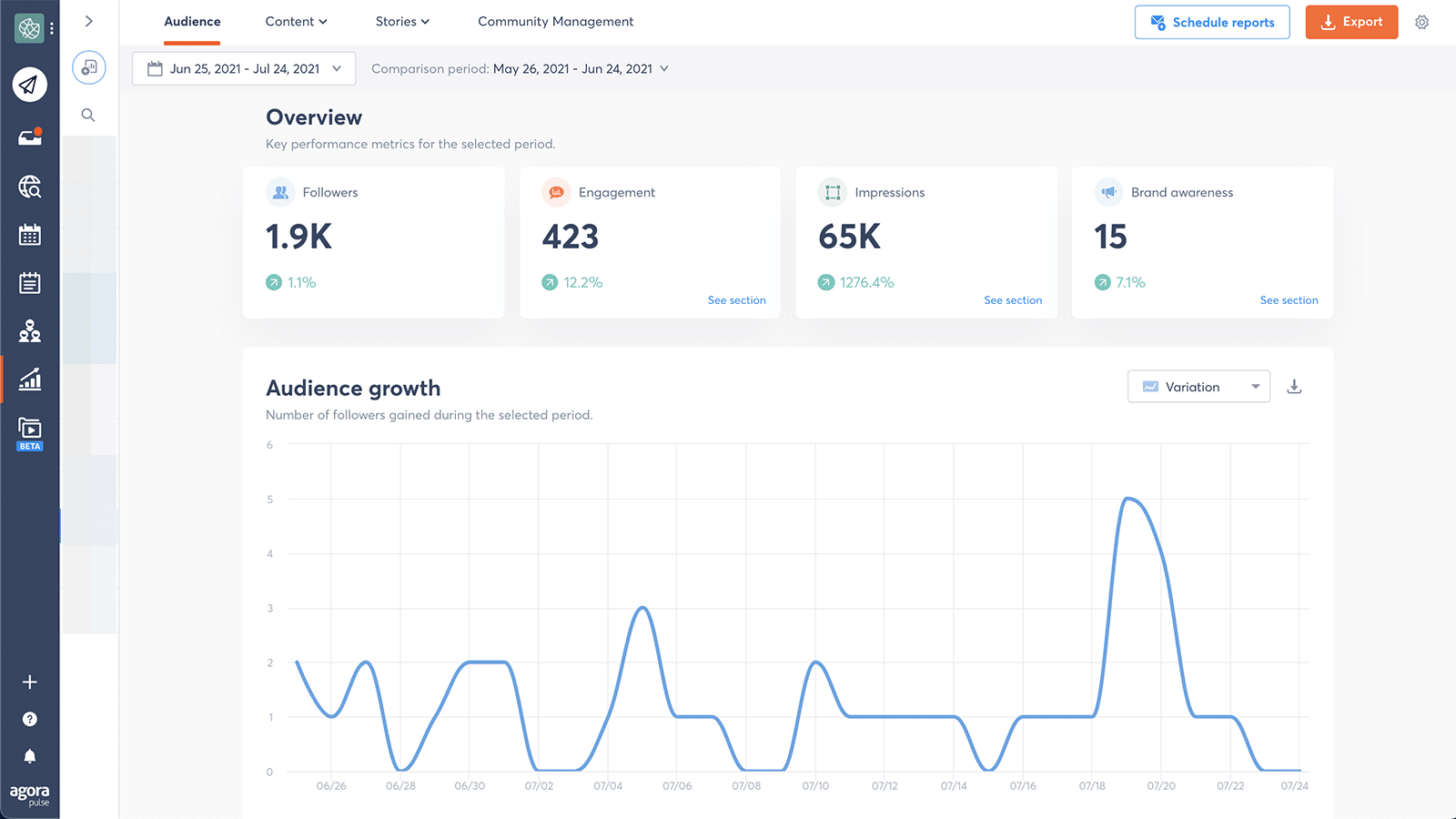
When you want to publish posts, moderate engagement, monitor your brand, or analyze results, Agorapulse is the ultimate social media management solution. Whether you run your brand’s social media pages or you manage client accounts, Agorapulse makes it easy to work efficiently while collaborating with your team. You can even rely on Agorapulse’s mobile app to manage social media outside the office.
3. Ahrefs: Website Management Tool
With an SEO tool like Ahrefs, increasing your site’s search visibility doesn’t have to be as difficult as you may think. From auditing your site and analyzing competitors to reviewing search terms and monitoring your site’s ranking, this toolset has your SEO needs covered. Ahrefs even offers agency plans designed for big teams and multiple SEO projects.
4. Airtable: Content Management Tool
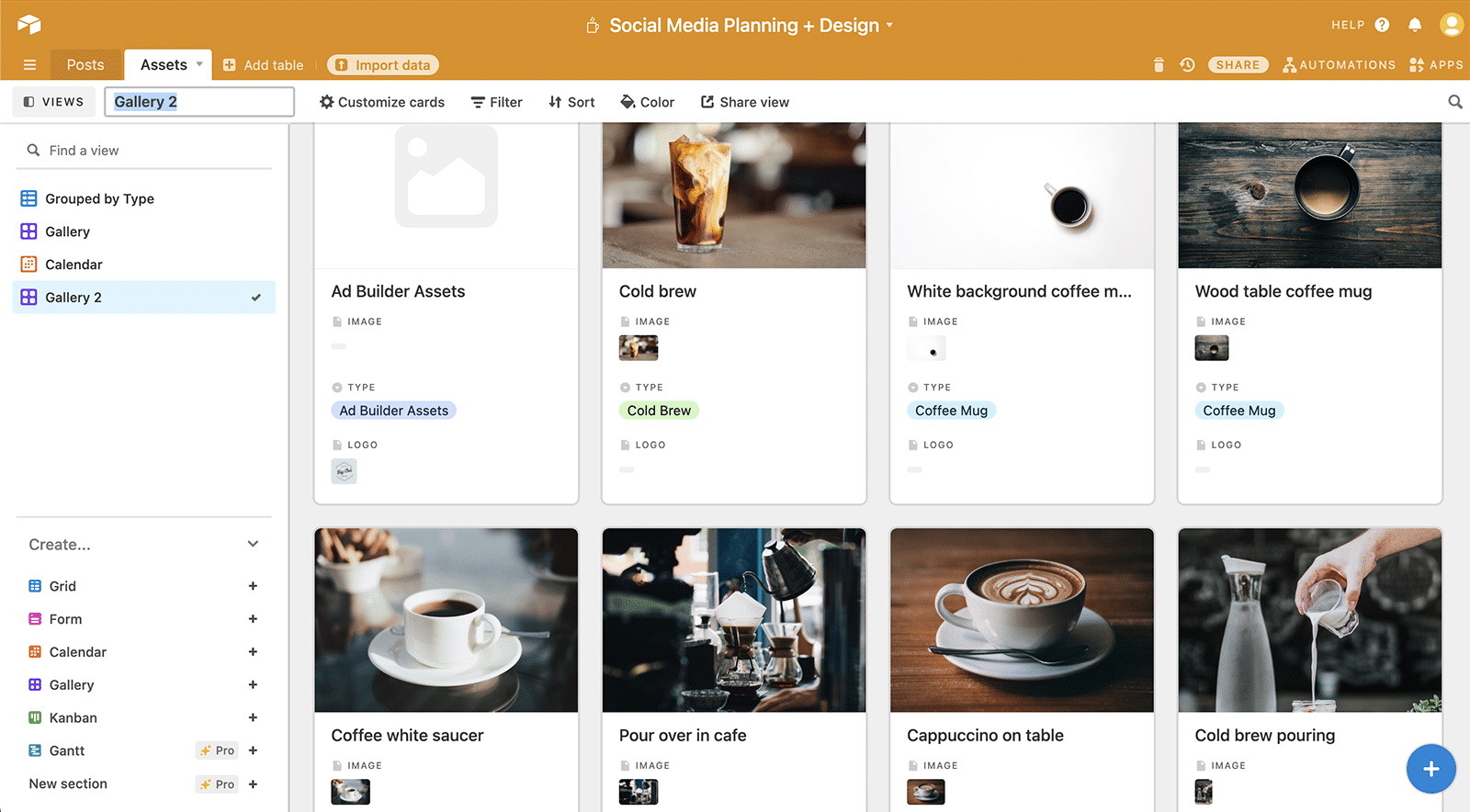
A hybrid spreadsheet – database app, Airtable excels at keeping your content organized. Your team can use this program to design content calendars, production workflows, and management systems to streamline marketing promotions. Airtable also has approval features and publishing integrations so you can work together to manage content.
5. BigCommerce: E-commerce Management Tool
When you want to sell products via your website, you need an e-commerce app like BigCommerce. This e-commerce plugin integrates with website platforms like WordPress, making it easier to generate revenue online from your existing site. BigCommerce also supports coupons, digital wallets, and SEO to grow your business.
6. BuzzSumo: Content Management Tool
A strong content strategy goes beyond creation alone. With BuzzSumo, you can identify the best content in your niche and curate it for your audience. This platform is also ideal for building connections with high-profile creators, researching content ideas for your brand, identifying trends, and connecting with influencers.
7. Canva: DAM Tool
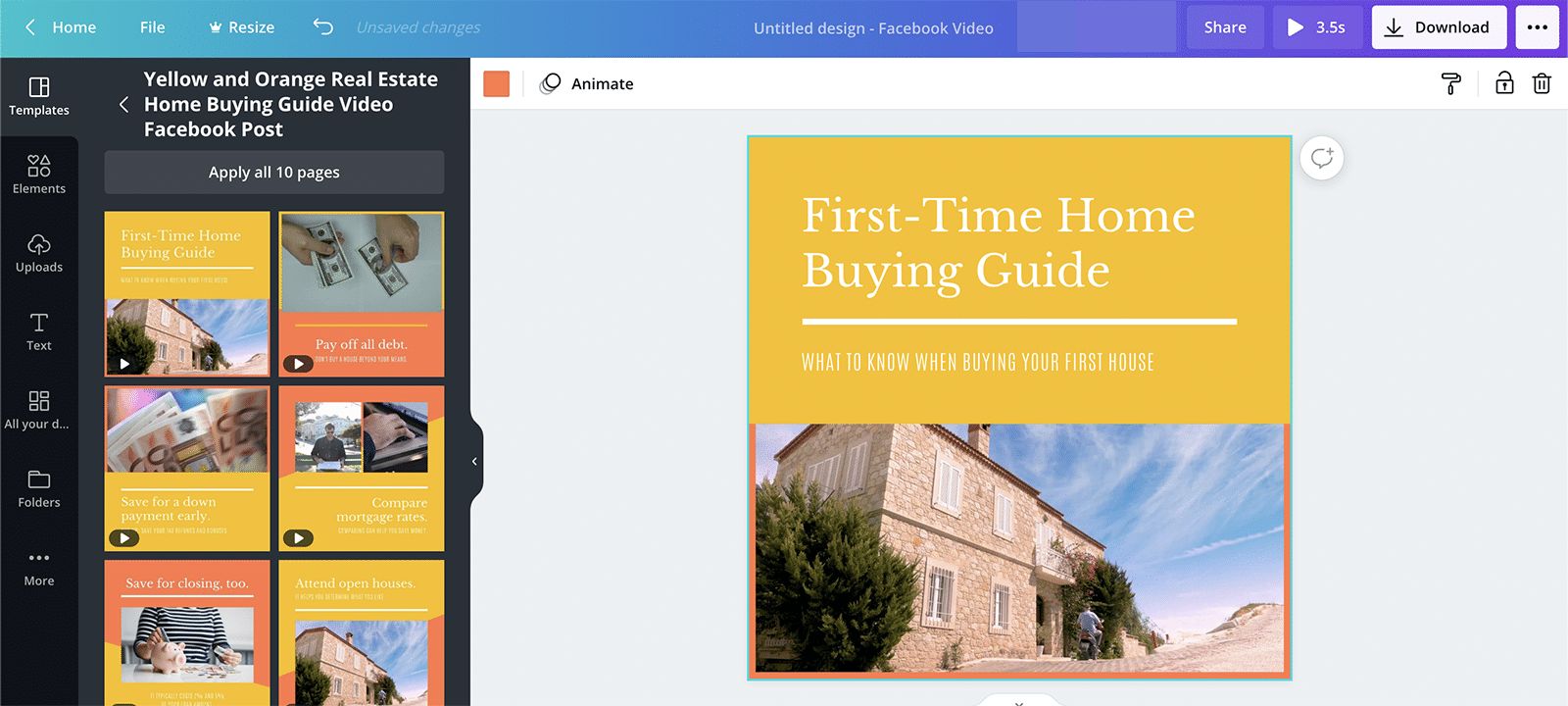
From social media to email to print, Canva can help your team create eye-catching marketing materials for nearly any channel. This design app offers tons of templates to inspire creativity and supports brand kits so you can get your branding right every time. Canva also works for teams so you can share assets and create together.
8. Cyfe: Analytics Tool
Many MarTech tools—such as Agorapulse—provide their own channel-specific analytics. When you want to monitor metrics and track progress on multiple channels simultaneously, a program like Cyfe is essential. Cyfe lets you create custom dashboards so you can see all your marketing data in one convenient place.
9. Dropbox: DAM Tool
Most marketing teams manage assets in a wide range of formats for a long list of channels. Although some MarTech tools can handle select formats or support certain channels, Dropbox can manage virtually all of your digital assets. With Dropbox you can store files securely, access them from anywhere, and share or collaborate with team members and clients.
10. Facebook Ads: Digital Advertising Tool
When it comes to paid social promotions, Facebook Ads Manager is a key part of any MarTech stack. This app lets you advertise on Facebook and Instagram with goals ranging from increasing brand awareness to getting more store visits. Ads Manager also lets you remarket to audiences from other marketing platforms so you can reach your goals more effectively.
11. GetResponse: Email Marketing Tool
With a MarTech tool like GetResponse, you can automate email marketing—and much more. This software platform lets you send marketing emails, create landing pages, and host webinars. With GetResponse, you can also automate your marketing with sales funnels, contact scoring, email workflows, and web push notifications.
12. Google Ads: Digital Advertising Tool
If you want to promote your business outside of social media, Google Ads is essential. This pay-per-click (PPC) advertising platform is key for search engine marketing (SEM). Google Ads helps you connect with people searching for what your brand offers and facilitates everything from brand awareness to high-value purchases.
13. Google Analytics: Analytics Tool
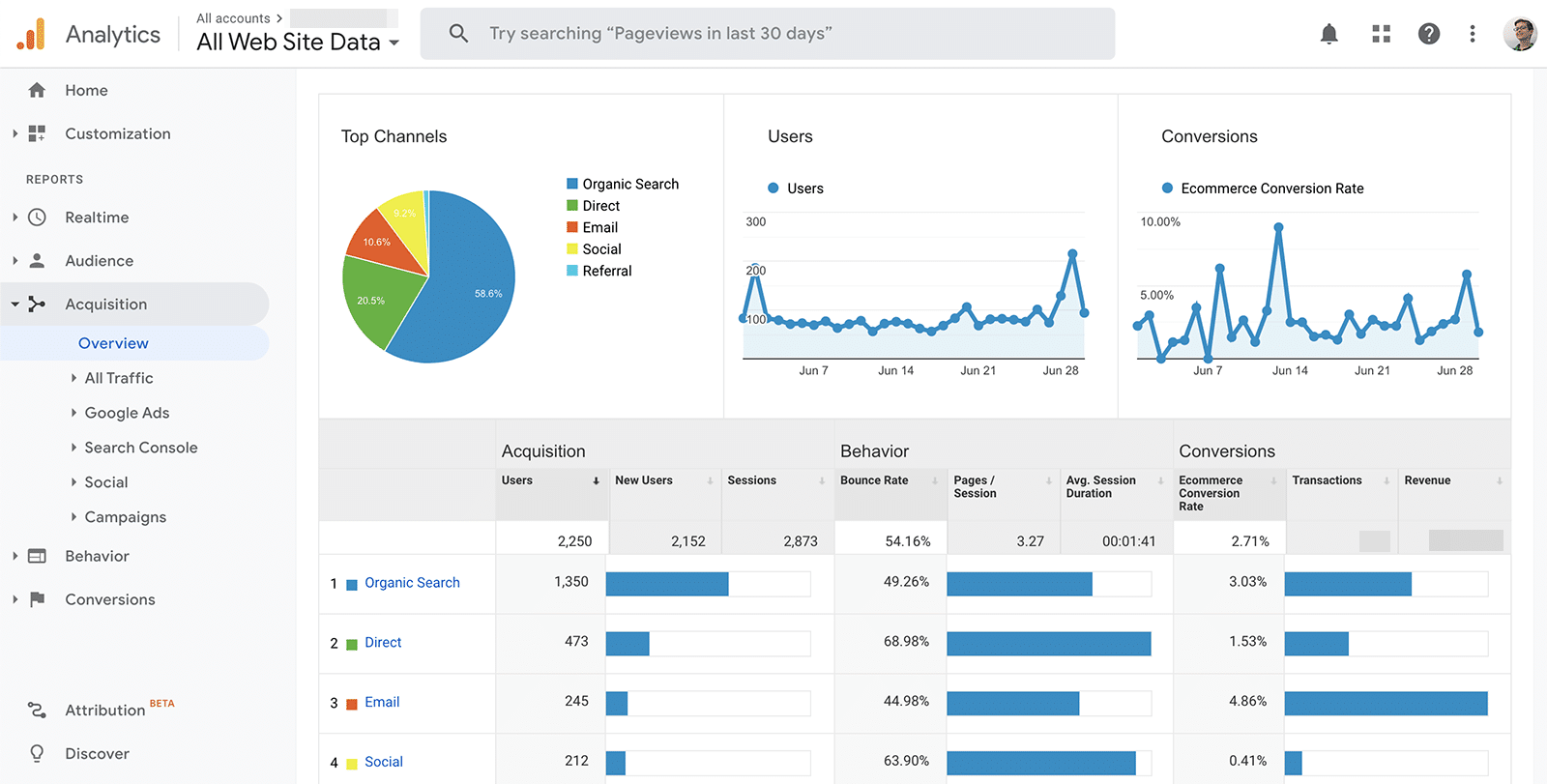
To maximize the value your website provides, your MarTech stack needs a tool like Google Analytics. This tool can integrate with virtually any website to provide data on visitor behavior, content consumption, and conversions. You can also set up goals in Google Analytics to monitor leads or integrate e-commerce to track revenue.
14. Hotjar: Analytics Tool
If you’d prefer a visual depiction of how visitors interact with your site, Hotjar has you covered. This web analytics tool uses heatmaps to show you where people click and how they navigate your site. You can use Hotjar’s insights to improve content, design, and architecture to get better results from your site.
15. HubSpot: Marketing Automation Tool
With a marketing automation tool like HubSpot, you can manage everything from lead generation to sales to customer feedback. You can use the CRM to manage prospects and the content management system to customize website content. You can also use the operations hub and customer service software to streamline internal efforts.
16. Instapage: Website Management Tool
When you want to increase conversions, a landing page creator like Instapage is an essential addition to your MarTech stack. Instapage has the templates you need to design and publish high-performing landing pages as well as personalization features for creating customized pages. With Instapage, you can also test versions to find the best one and collaborate with your team.
17. Keyhole: Social Media Management Tool
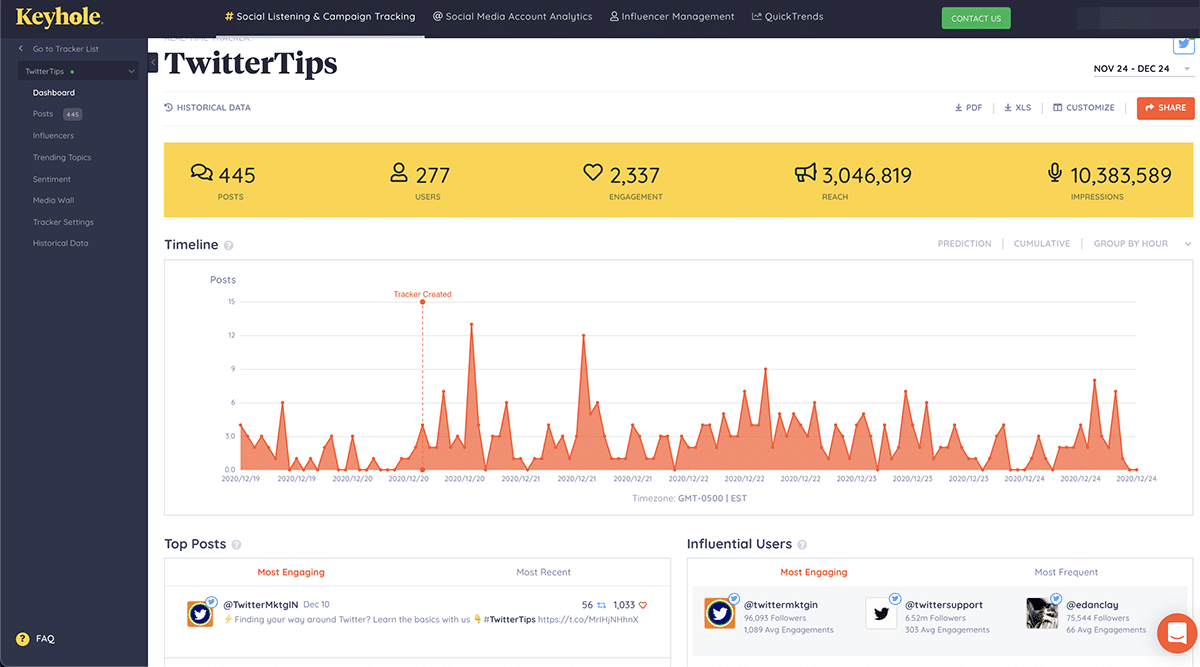
When you want to stay ahead of the competition, Keyhole can help you analyze your social media strategy. This social listening tool offers brand monitoring, influencer identification, and competitive analysis. Keyhole can also optimize your brand’s influencer campaigns so you can get more value while working smarter.
18. Mailchimp: Email Marketing Tool
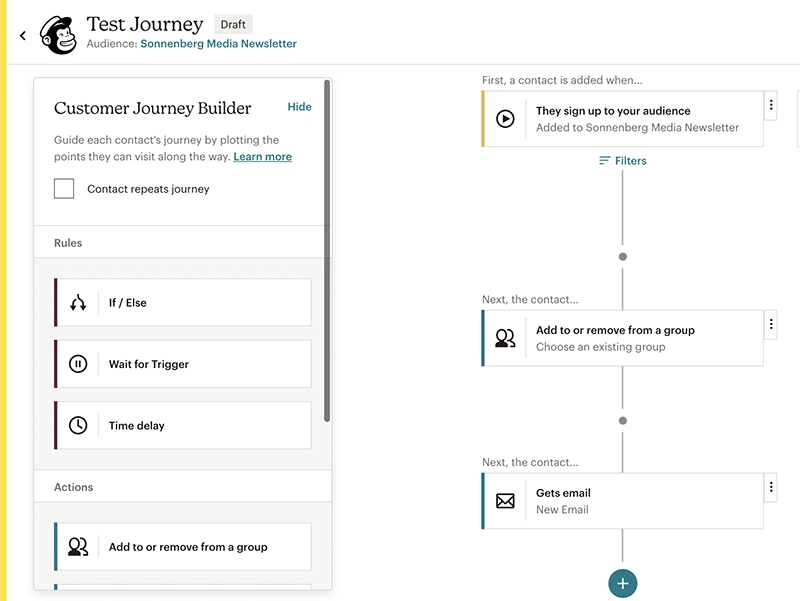
As an all-in-one marketing platform, Mailchimp is much more than an email marketing tool. With Mailchimp, you can send emails to your customer list, build websites and landing pages, and maintain a CRM. Mailchimp’s built-in automation features also let you build funnels so you can nurture leads and increase revenue around the clock.
19. Marketo Engage: Marketing Automation Tool
When you want to guide prospects from awareness to conversion, Marketo Engage can streamline the buyer’s journey. An important addition to any MarTech stack, this marketing automation tool can personalize content, encourage engagement across channels, and provide insightful marketing impact analytics.
20. Moz: Website Management Tool
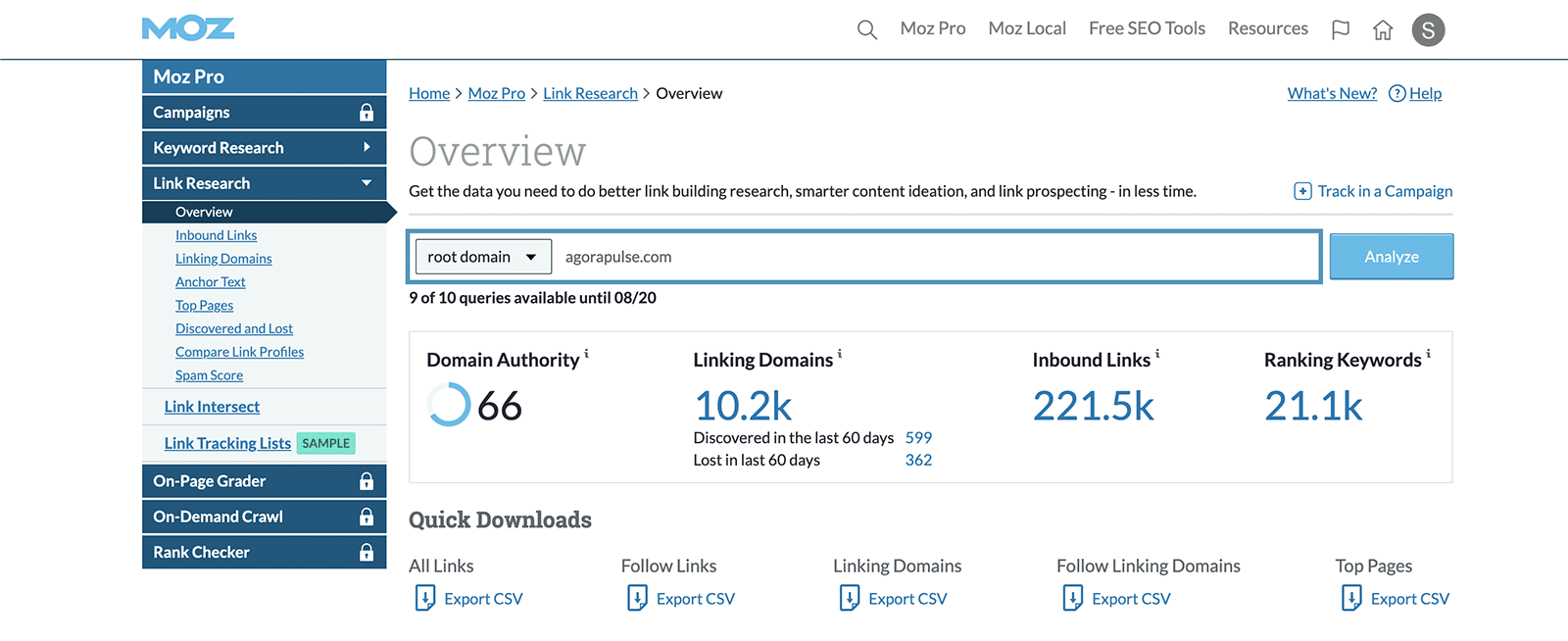
When you want to attract more visitors to your website, Moz can help. This SEO toolset offers website audits, keyword research, backlink analysis, and site rank tracking. With Moz, you can also improve local search visibility and get expert-level search engine results page (SERP) tracking and competitor intelligence.
21. Optimizely: Website Management Tool
An essential tool for your MarTech stack, Optimizely is engineered to optimize your website. This web management tool lets you experiment with layouts, measure outcomes, and collaborate efficiently. That means Optimizely can help you drive conversions, retain customers, and grow your business.
22. Oribi: Analytics Tool
No matter how visitors find your website, Oribi can help you evaluate how they behave. With this analytics, tool, you can compare campaigns, see the value each channel provides, and view visitor journeys. Oribi can also ensure you attribute conversions to the right channels and optimize your sales funnels.
23. Salesforce: CRM Tool
When you need an app that can track leads, monitor sales, and oversee service, you need a CRM like Salesforce. This powerful app is designed to help you cultivate leads and capitalize on sales opportunities. With Salesforce, you can also forecast sales and get real-time insights for your team.
24. Shopify: E-commerce Management Tool
If you want to build an e-commerce business online, Shopify has the tools you need. With Shopify, you can sell products from your website, via social media, and in online marketplaces. This platform also integrates with a long list of tools so you can streamline social media, email marketing, and digital advertising.
25. SimilarWeb: Business Intelligence Tool
From audience research to product optimization to lead generation, SimilarWeb has the data you need to succeed online. This business intelligence tool also provides competitive analysis, shopper intelligence, and affiliate optimization. That means with SimilarWeb’s in-depth insights, you can build better digital strategies.
26. Tableau: Business Intelligence Tool
No matter what channel you want to analyze, Tableau can transform your data into insights. This business intelligence platform generates easy-to-understand visual analytics and uses advanced tech like machine learning to provide next-level insights. Tableau also lets you seamlessly share analytics with colleagues and clients.
27. Unbounce: Website Management Tool
Building high-performing landing pages is much more manageable with a MarTech tool like Unbounce. This landing page builder simplifies the design process and relies on artificial intelligence (AI) to improve conversions. With Unbounce, you can also experiment with page design and functionality to optimize leads and sales.
28. WordPress: Website Management Tool
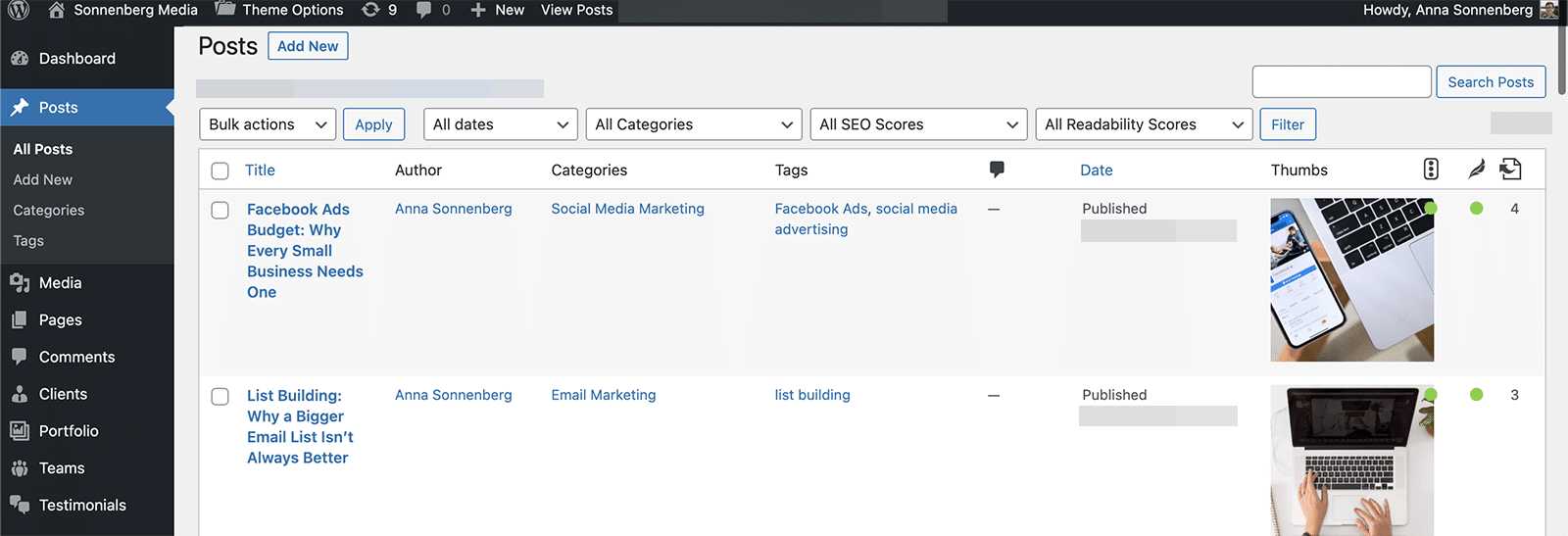
When you want to enhance your business’s online presence, WordPress is a top choice for website management. With WordPress, you can build and customize a website, maintain a blog, and sell e-commerce products. This platform also integrates with tons of email, social media, e-commerce, and automation tools to streamline your marketing efforts.
29. Zendesk: CRM Tool
Managing customers becomes much easier with a CRM tool like Zendesk. This platform streamlines sales and service and tracks both prospects and current customers. Since Zendesk integrates with all the tools your team already uses, it’s an essential part of your marketing toolset.
In Conclusion
With the right MarTech stack, your team can automate processes, analyze results, and accomplish goals more efficiently. Use these recommendations for the best Martech companies and platforms to get started building the ideal suite of tools for your business or social media marketing agency.
Read more: agorapulse.com









